
3rd INTERNATIONAL SYMPOSIUM ON INTERGROUP COMMUNICATION (ISIC3)
The main aims of the symposium are:
1. To provide the next forum for presenting and discussing current, cutting-edge research on intergroup communication.
2. To bring international seasoned scholars and graduates together with a view to crafting collaborative international projects on intergroup communication across a range of topics.
3. To continue the interest in research and teaching of intergroup communication in an international context.
All sessions will be plenary!

The study of intergroup communication concerns the interplay between communication and social relations in a variety of contexts: organizations, families, health, media, intercultural, new technology, etc. Papers on all topics of intergroup communication are invited: family; social networks; news media; disability; stigma; multilingualism; border communication; group vitalities; intergroup contact; multilingual settings; language and identity; particular intergroup settings (e.g., Ukraine, Covid-19 pandemic), etc.
Journal Psychology of Language & Communication, will have a Special Issue devoted to ISIC3. In the registration form you will be asked whether you want to submit a paper to the Special Issue. Actual submission deadline will be July 31st, 2025.
We are proud to announce a second special emerging from the Symposium. It will be in the Atlantic Journal of Communication and will feature papers of all the keynote speakers, including the prologue, call to the field, and the epilogue.
Important dates
Symposium
University of Warsaw, Poland, 24 -26 JUNE 2025
Registration & submission
until January 31st, 2025 – abstract submissions
February 28th, 2025 – feedback on submission acceptance
April 1st – April 30th, 2025 – registration, including intent to submit a paper for Psychology of Language and Communication Special Issue
June 24 – 26, 2025 SYMPOSIUM
July 31st, 2025 – paper submission for Psychology of Language and Communication Special Issue
Fees
Regular (PostDoc, faculty member, assistant / associate / full professor) – 250 EUR or 1050 PLN
Student (undergradute / master / PhD student) – 190 EUR or 800 PLN
Keynote speakers
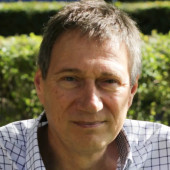
Dominic Abrams
Dominic Abrams is a Professor of Social Psychology and the Director of the Centre for the Study of Group Processes in the School of Psychology at the University of Kent. His research examines all aspects of relations between different social groups and the behaviour of groups in general. He has extensive experience in the areas of equality and human rights, prejudice, discrimination, social attitudes and social change across the life course. His expertise spans social and developmental psychology and gerontology and uses a wide range of methods, ranging from laboratory and field experiments to national and international surveys. Dominic has worked closely both with the charitable sector (notably Age UK, the Anne Frank Trust, and People United), and with government departments (DWP, CLG) as well as with the Equality and Human Rights Commission to develop and evaluate interventions to reduce prejudice and discrimination. He has authored and coauthored over 200 papers and numerous books on groups, identity and social inclusion, and edits the journal Group Processes and Intergroup Relations.
Abstract
Intergroup and Intragroup Dynamics of Communication, Norm Change and Social Cohesion
Communication serves many functions, one of which is to signify values and norms. In this talk I will tour some of my recent research that considers social psychological processes that determine the impacts of group communication. I will describe evidence on what happens when leaders (and groups) convey attitudes that are discrepant from the prevailing norms. Under what conditions do these communications signal a norm shift, and under what conditions do they instead invite opprobrium? To what extent is the acceptability of a deviant communication conditional on its source? In what ways is it possible to convey information about outgroup members that can penetrate and break down prejudice? How did some of these processes affect societal cohesion during the COVID pandemic? More broadly I will consider policy implications for social cohesion and the practicalities of communicating across horizontal and vertical divides between groups.
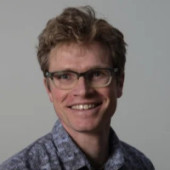
Camiel J. Beukeboom
Camiel Beukeboom is associate professor at the Department of Communication Science of the Vrije Universiteit Amsterdam. He obtained his PhD in Social Psychology at Vrije Universiteit Amsterdam (2003). His research mainly focuses on the role of language in the communication and maintenance of stereotypes and prejudice. Using both experimental methods and (automated) content analysis he aims to reveal the various ways in which social-category stereotypes are (implicitly) expressed in the use of language. His work, for instance, showed how specific linguistic biases (e.g., negation bias; irony bias) contribute to stereotype maintenance. In recent projects he uses automated content analyses to study when and how stereotypes are reflected in spontaneously produced natural language (e.g., in applied contexts; in news content, or age discrimination in job advertisements).
Abstract
Biased language use: The implicit communication of social-category stereotypes in natural language
In general, it is acknowledged that language use plays a crucial role in the formation and maintenance of shared social-category stereotypes. Research on linguistic bias reveals that, when communicating about other people, a speaker’s linguistic choices reflect activated stereotypes. In turn, this feeds social-category perceptions in message recipients. A caveat in existing research, however, is that it often relied on experimenter-generated artificial sentences, and/or studied linguistic features in isolation (e.g., labels, language abstraction, negations, agency), which differs in various ways from real-life discourse. In a current research project we adopt a more integrative approach by focusing on natural language use. In natural-language texts, formulations are more complex, texts may develop from discussing situational behaviors of categorized individuals to generalizations about the category as a whole, and various known linguistic biases may interact or occur simultaneously. The project bridges communication science, social psychology, and linguistics to better understand the role of language in perpetuating stereotypes and discrimination in society.
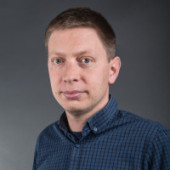
Michał Bilewicz
Michał Bilewicz is an associate professor of psychology and the director of the Center for Research on Prejudice at the University of Warsaw. He specializes in social psychology of intergroup relations and political psychology, applied to such problems as social identity, hate speech, and stereotyping. He is interested in the determinants of people’s attitudes towards other social groups and other species, as well as post-conflict situations (issues of reconciliation, forgiveness, moral emotions, understanding and explaining the past). In recent years, he has been developing a model of reconciliation based on moral examples, as well as an epidemic model of the spread of hate speech.
Abstract
The epidemics of hate speech and psychological ways to overcome it
The effects of hate speech on racism, intergroup violence, or political radicalization have been a primary focus of social psychological theorizing for decades (Allport, 1954). The recent development of electronic means of communication (social media, news websites, citizen journalism) made hate speech one of the most pressing societal issues and a fertile ground for social psychological theorizing and research. Social psychological research has shown that overhearing hate speech, a derogatory language about minorities or immigrant groups, increases stereotyping, prejudice, and discrimination among majority groups, but such exposure also severely affects minorities’ mental health (see: Bilewicz & Soral, 2020). In this talk, I will present an epidemic model of hate speech that includes three intertwined processes: behavioral (desensitization), normative (change in perceived norms), and emotional (deficits in empathy). I will present cross-sectional, experimental, and psychophysiological studies analyzing the effects of hate speech. Based on this deeper understanding of the hate speech epidemic, I propose and test potential psychological ways of confronting hate speech epidemics, including interventions in online and offline environments.
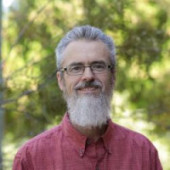
Jake Harwood
Jake Harwood (PhD, Univ. of California, Santa Barbara) is a Professor of Communication at the University of Arizona. His research focuses on intergroup communication with a particular focus on age groups, and on the role of music in intergroup relations. He authored “Communication and Music in Social Interaction” (Cognella, 2018) and “Understanding Communication and Aging” (2nd Edition, Cognella, 2018). He co-edited “The Oxford Encyclopedia of Intergroup Communication” (Oxford, 2018), “The Dynamics of Intergroup Communication” (Peter Lang, 2010) and “Intergroup Communication: Multiple Perspectives” (Peter Lang, 2005) He has published over 150 articles and book chapters.
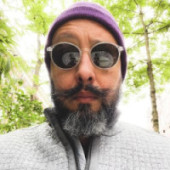
Nicholas A. Palomares
Nicholas A. Palomares (Ph.D.; University of California, Santa Barbara; 2005) joined the Moody College of Communication in the Fall of 2021 as a Professor in the Department of Communication Studies after being a Professor of Communication at the University of California, Davis for 17 years. Dr. Palomares is a first generation, Latinx, and genderfluid (pronouns: she/he/they/Nik’s) quantitative social scientist whose research aims to shed light on how people understand messages and how those messages affect folks in a variety of social setting and contexts. Dr. Nik leads the Goal Understanding & Communication Lab in the Department of Communication Studies at Texas. Dr. Nik teaches courses on empirical research methods, gender and communication, theory construction in communication science, and (cyber)bullying. Dr. Nik’s research has appeared in top journals, such as Human Communication Research, Journal of Computer-Mediated Communication, Communication Monographs, Communication Research, Journal of Language and Social Psychology, International Journal of Communication or Journal of Social and Personal Relationships.
Abstract
Explicating gender identity and its constellation of constructs
In my keynote, I will discuss gender identity and its constellation of connected constructs. Over the last 20+ years, I have witnessed incredible change in how society defines, discusses, and treats gender. Social justice movements have explicitly encouraged gender and sexual equality. Likewise, expanding gender representations on traditional and social media promote diverse ways in which people understand and approach gender and related concepts vis-à-vis intergroup contact. At the same time, antagonistic segments of society are pushing back against this progress threatening the vitality of gender diverse individuals who finally have a space and voice in society. Backing these anti-diversity campaigns are often political ones that ask voters to decide the fate of gender related policies with legitimate life-or-death implications at times. It is within this milieu that I explore gender identity and its constellation of constructs to generate a conceptualization of gender identity rooted in an intergroup communication perspective.
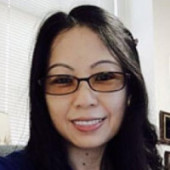
Yan Bing Zhang
Dr. Yan Bing Zhang is a Professor in the Department of Communication Studies at the University of Kansas. Dr. Zhang is an intergroup and intercultural communication scholar. She studies the processes between communication, relationships, social cognition, culture, and identity in face-to-face and mediated contexts. She received the 2007 William T. Kemper Fellowship for Teaching Excellence, the 2019 Dean’s Award for Excellence in Mentoring Student in Research, and the 2020 Howie Giles Mentorship Award from the International Association of Language and Social Psychology. Her publications have appeared in some U.S. and international journals in communication and social psychology including Journal of Communication, Communication Monographs, Communication Research, New Media & Society, Journal of Broadcasting & Electronic Media, Journal of Cross-Cultural Gerontology, International Journal of Intercultural Relations, Journal of Language and Social Psychology. The Communication and Aging Division of the National Communication Association recognized her scholarship with the 2021 Giles-Nussbaum Distinguished Scholar Award.
Organizers:
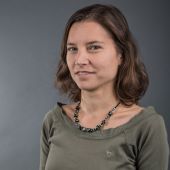
Karolina Hansen (University of Warsaw, Poland & Leibniz Institute for the German Language, Mannheim)
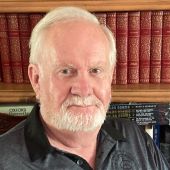
Howard Giles (University of California Santa Barbara, USA & The University of Queensland, Australia)
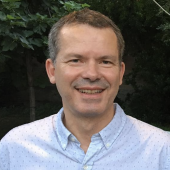 Antonis Gardikiotis (Aristotle University of Thessaloniki, Greece)
Antonis Gardikiotis (Aristotle University of Thessaloniki, Greece)

Guest Editorial Board for the PoL&C special issue:
Anastassia Zabrodskaja, Tallin University, Estonia
Bernadette Watson, The Hong Kong Polytechnic University, University of Queensland, Hong Kong & Australia
Camiel Beukeboom, VU University Amsterdam, Netherlands
Hiroshi Ota, Hitotsubashi University, Japan
Liz Jones, Monash University, Malaysia
Marko Dragojevic, University of Kentucky, USA
Michal Bilewicz, University of Warsaw, Poland
Nicholas Palomares, University of California, USA
Sucharita Belavadi, FLAME University, India

International Organizing Committee:
Michael Hogg (USA), Sucharita Belavadi (India), Anastassia Zabrodskaja (Estonia), Richard Clément (Canada), Liz Jones (Malaysia), Bernadette Watson (Australia); Hiroshi Ota (Japan), and Monica Rubini (Italy)
Local Committee (University of Warsaw):
Karolina Hansen, Maria Mirucka, Michał Wypych, Kamila Zochniak